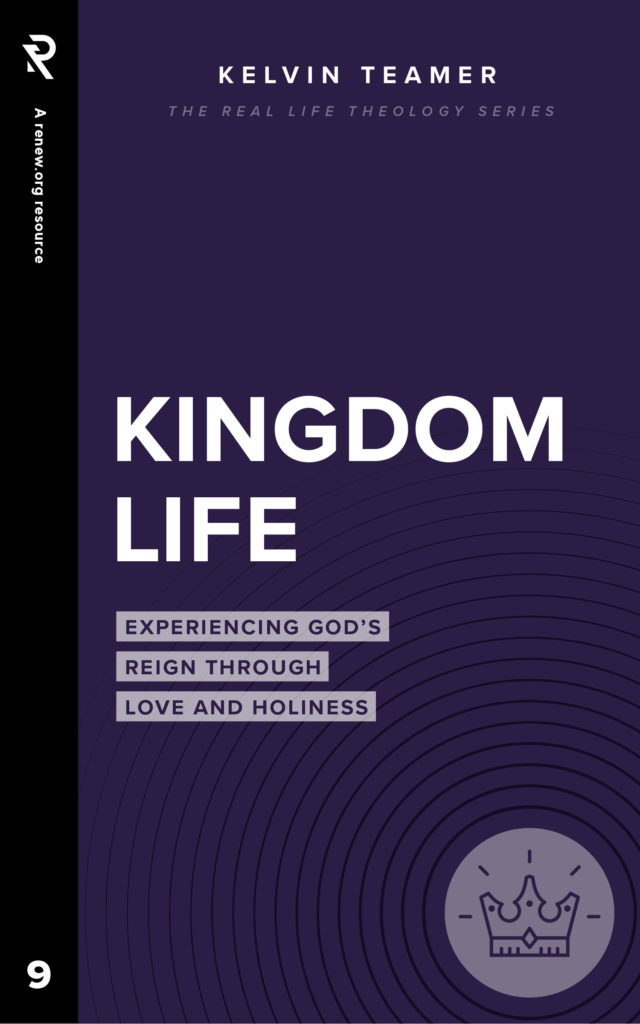
Lord’s Prayer: Forgive Us Our Debts
The Lord’s Prayer is short. That’s kind of the point (Matt. 6:7-8). If you’re going to whittle things down and say no more than what absolutely needs to be said, this is what needs to be said. The prayer only has four movements, and one of them is about forgiveness.
“And forgive us our debts as we forgive our debtors” (Matt. 6:12).
More than that, forgiveness is the only theme that gets an extended discussion after the prayer: “For if you forgive others their trespasses, your heavenly Father will also forgive you, but if you do not forgive others their trespasses, neither will your Father forgive your trespasses” (Matt. 6:14-15). This coda says that forgiving others is essential (a point that gets its own parable in Matthew 18:21-35).
Apparently, if we’re going to talk about the Kingdom, we have to talk about forgiveness.
What needs forgiven?
Talking about forgiveness means we need to start by understanding what’s being forgiven. Verse 12 talks about “debts” and verses 14-15 say “trespasses,” but Luke is clear that this is all under the umbrella concept of “sin” (Luke 11:4). In order to talk to our culture about sin in a way that doesn’t sound like meaningless church gibberish (think the teacher in the Peanuts cartoons), let’s start with the way we experience sin. A person “sins” when they choose their immediate interests over someone’s overall well-being. The choice may look good right now, but the net result is that sin does damage.
If it does damage to ourselves, our response is (in retrospect), “That was dumb.”
It’s harder for us to own the damage it does to someone else (think Nathan confronting David in 2 Samuel 12). But let’s say we do—we recognize that someone else paid a pretty heavy price for our actions. Once that sinks in, our response is, “That was wrong.”
We only start talking about “sin” when we realize that God has a stake in all this. He is the Creator. Whatever we broke, we’re messing with his stuff. And people are created in his image. Whomever we hurt, we’re messing with his kids. In fact, if he created us in his image, then we tarnish that image when we sin. Which means we’re messing with him.
“We only start talking about ‘sin’ when we realize that God has a stake in all this.”
God takes sin personally.
At that realization, the blood drains from our face. All the other effects of our sin pale in comparison (Ps. 51:4). We have violated something fundamental to the universe. Maybe the idea of a moral offense against a sovereign God doesn’t really connect with our culture. But everyone can see that this world is broken. Clearly damage has been done. The Christian doctrine of sin is the awful realization that we are the ones who did it. We broke the world. We are breaking it. Every time I choose my immediate interests over someone’s overall well-being, I break the world just a little bit more. Damage is done. And it is often damage that can’t be undone.
Compounding the Damage
And this damage has a compounding effect. We have all been hurt by someone else’s choices. That hurt can take many forms—physical, financial, whatever. But the emotional hurt tends to stick with us the most. It can become pain that we carry around. The temptation is to handle this pain in ways that just do more damage:
- The one who hurt me gave me this pain. Vengeance actively tries to stop hurting by giving them the pain back. But it doesn’t work that way. We may succeed in hurting them, but our pain doesn’t leave. Instead, we have successfully multiplied the pain.
- Resentment passively hopes they will get hurt back. That doesn’t hurt them at all. Instead, every time we see them not hurt, the pain is compounded in us.
- In bitterness, the pain takes root and isn’t really connected to them at all, anymore. As a result, instead of paying the pain back, we pay it forward. We become toxic—spreading our pain to whomever we come in contact with.
“Instead of paying the pain back, we pay it forward.”
This is what living in the “present evil age” is—hurting and being hurt. Pain compounding pain. To live in this world is to experience the pain of being harmed by other peoples’ choices and to harm other people in turn.
In steps Jesus.
From Old to New
A running theme in these articles is that, in the work of Christ, the old, broken age is giving way to the new, unbroken one. If the damage done can’t be undone, then the solution is that everything has to be made new (Rev. 21:5). Well, if our sin broke the old age, then, necessarily, the only way for us to get from the old age to the new one is forgiveness.
Forgiveness is the bridge between the old age and the new age.
“Forgiveness is the bridge between the old age and the new age.”
This is true on a cosmic level. A classic way of presenting the gospel draws a chasm between people and God. In the little diagram, sin is the chasm, and the cross is what bridges it. What is the cross? Forgiveness (Matt. 26:28).
Subjective and Objective
But what is forgiveness? Forgiveness comes in two different varieties—subjective and objective. Subjective has to do with how you feel about the person who did the damage. Sin has consequences. While the consequences for the sinner themselves may not always be obvious, they are there. Forgiveness means letting go of your desire to see the one who sinned face those consequences. You may want to see them healed (which could still be a rough process), but you no longer want to see them hurt.
Sticking to the cosmic level, what is God’s subjective response to our sin? How does God feel about all this breaking we do? Apparently he’s pretty mad about it. This may be an uncomfortable truth, both personally and culturally. But I have no business telling anyone (much less God!) what they should or shouldn’t feel or what boundaries they need to draw. But I can be grateful that God’s fundamental characteristic is not anger. It is love. And in his love he’s done absolutely everything necessary to deal with his anger. That is what a “propitiation” is (1 John 2:2; 4:10).
“In his love he’s done absolutely everything necessary to deal with his anger. That is what a propitiation is.”
But God’s forgiveness is not merely subjective. It is objective. Subjective forgiveness doesn’t want them to face the consequences. Objective forgiveness removes the consequences themselves. It pays the debt. In fact, Jesus’ word on the cross, “It is finished” (John 19:30), was often used exactly that way. You wrote it on a bill of sale to indicate “paid in full.”
If God’s forgiveness removes the consequences for all the breaking we do, how bad were those consequences? Look at the cross for the answer.
Pretty bad.
Centuries of religious people have meditated on Jesus’ death on the cross, not out of some morbid fascination, but in order to grasp the depth of what they have been forgiven. Jesus’ death on the cross is the sum total of all the harm humanity has ever done to each other. In Jesus’ death, all the brokenness caused by our sin dies with him. So when he rises, he brings something new.









